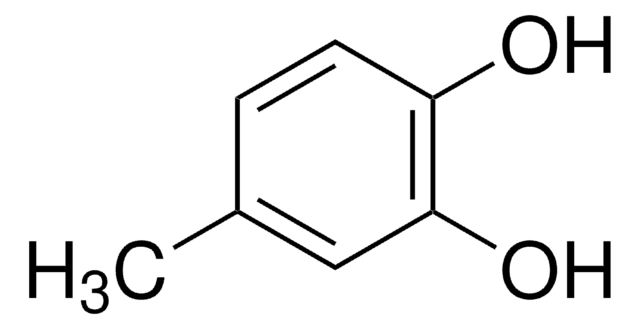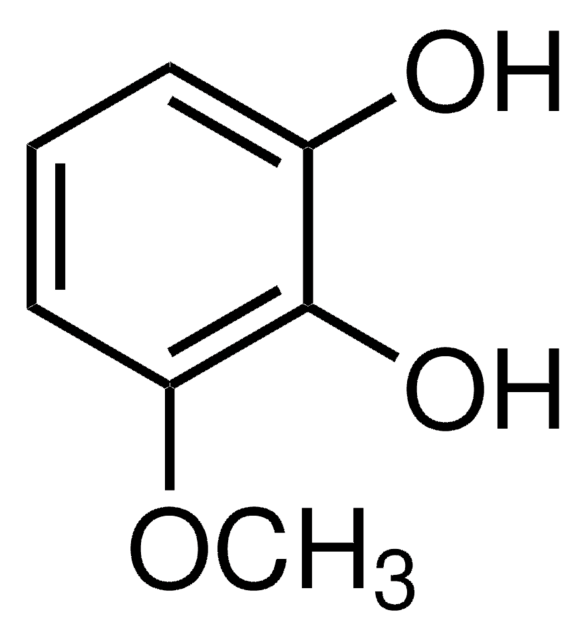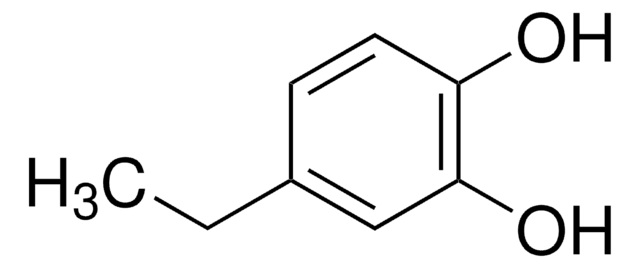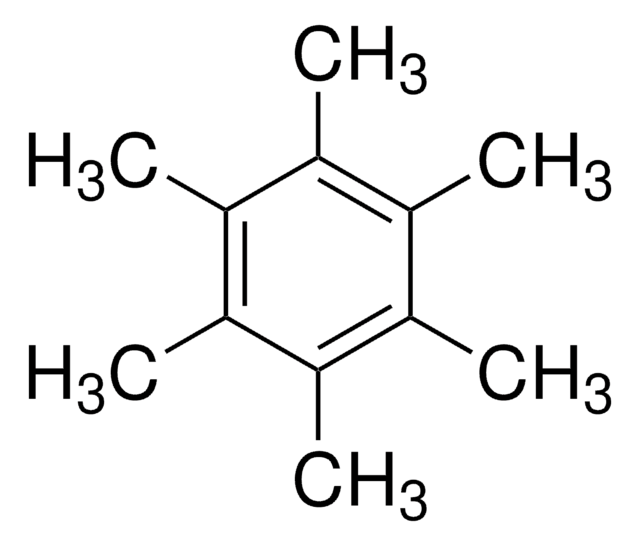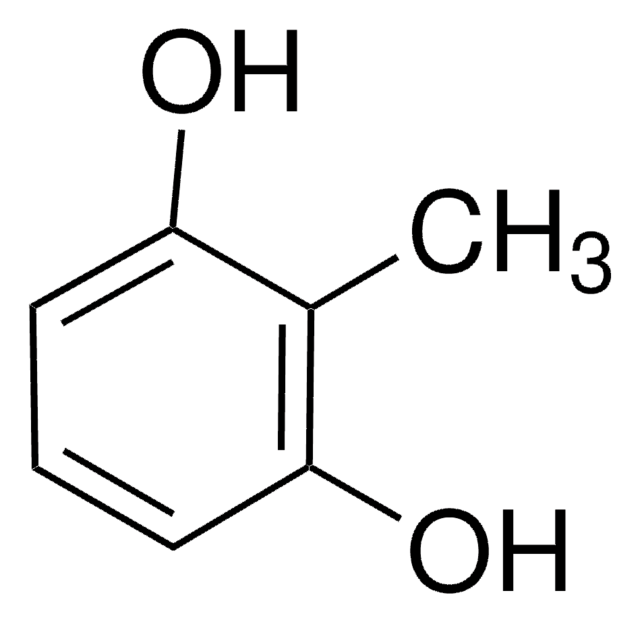M34006
3-Methylcatechol
98%
Sinónimos:
1,2-Dihydroxy-3-methylbenzene, 2,3-Dihydroxytoluene, 2,3-Toluenediol, 2-Hydroxy-3-methylphenol, 2-Hydroxy-6-methylphenol, 3-Methyl-1,2-benzenediol, 3-Methyl-1,2-dihydroxybenzene, 3-Methylpyrocatechol
About This Item
Productos recomendados
Nivel de calidad
Análisis
98%
bp
241 °C (lit.)
mp
65-68 °C (lit.)
Condiciones de envío
wet ice
temp. de almacenamiento
2-8°C
cadena SMILES
Cc1cccc(O)c1O
InChI
1S/C7H8O2/c1-5-3-2-4-6(8)7(5)9/h2-4,8-9H,1H3
Clave InChI
PGSWEKYNAOWQDF-UHFFFAOYSA-N
Categorías relacionadas
Palabra de señalización
Warning
Frases de peligro
Consejos de prudencia
Clasificaciones de peligro
Acute Tox. 4 Oral - Eye Irrit. 2 - Skin Irrit. 2 - Skin Sens. 1 - STOT SE 3
Órganos de actuación
Respiratory system
Código de clase de almacenamiento
11 - Combustible Solids
Clase de riesgo para el agua (WGK)
WGK 3
Punto de inflamabilidad (°F)
Not applicable
Punto de inflamabilidad (°C)
Not applicable
Equipo de protección personal
dust mask type N95 (US), Eyeshields, Gloves
Elija entre una de las versiones más recientes:
¿Ya tiene este producto?
Encuentre la documentación para los productos que ha comprado recientemente en la Biblioteca de documentos.
Los clientes también vieron
Protocolos
Separation of Resorcinol 50 mg/mL; Pyrocatechol; 2-Methylresorcinol; 4-Methylcatechol; 2,5-Dimethylresorcinol 50 mg/mL; 3-Methylcatechol 50 mg/mL; 4-Nitrocatechol 50 mg/mL
Nuestro equipo de científicos tiene experiencia en todas las áreas de investigación: Ciencias de la vida, Ciencia de los materiales, Síntesis química, Cromatografía, Analítica y muchas otras.
Póngase en contacto con el Servicio técnico